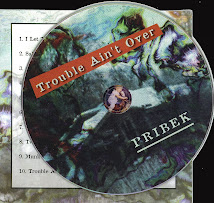Píšu pro radost, když mám být přesný, já jsem smutný,
Translation:
Scrivo per la gioia quando devo essere [Esný] sono triste
It means: “Hermione, you better hurry up before young Master Potter gets away.” It’s a simple statement of — if you are a young Nubian princess, and you challenge your secret crush to a foot race — and you out run him as if he is “running in sand…”
then he will find someone who doesn’t humiliate him so much.
However, if you make a spit handshake before you throw him down, put him in a half-guard, and rain down elbows on his pumpkin head, then the defeat is worth the wait… ask any brother who grew up with an older pugilistic sister.
So, implicitly it alludes to the old adage: “the means, what ever they are, are justified because of the preemptive agreement that you will end up on top…” and that is probably not what you were wanting to hear. You probably thought it translated something more romantical.
_____________________And_______________________Gorbelly, World Wide Words is copyright © Michael Quinion, 1996–2008.
Having a protuberant belly; corpulent.
It seems probable that it derives from Old English gor or gore, meaning at first dung or dirt; in the sixteenth century it shifted sense to our modern one of blood that has been shed as a result of violence.
Gorbelly came along early in the sixteenth century, in a poem by John Skelton. The adjective followed soon after — Shakespeare used it in his Henry IV, Part One: “Hang ye, gorbellied knaves, are ye undone?” It dropped out of use in the nineteenth century, with one of the last users in a direct line from the ancients being Douglas Jerrold, who wrote “The gorbellied varlets, with mouths greasy with the goods of cheated worth.”
These days it appears only rarely, being a word resurrected to give a sense of another age in historical fiction or fantasy, as in Harry Turtledove’s alternate history, Ruled Britannia, in which the English failed to defeat the Armada in 1588 and in which the delightful scene-setting opening line is “Two Spanish soldiers swaggered up Tower Street toward William Shakespeare.” Turtledove writes later, “‘Consumption catch thee, thou gorbellied knave!’ a boatman yelled.”
To save anyone pointing it out, it’s also in James Joyce’s Ulysses.
(Retrieved today here: World Wide Words is copyright © Michael Quinion, 1996–2008. All rights reserved. For Critical Review and advertisement of Michael Quinion's website)




No comments:
Post a Comment